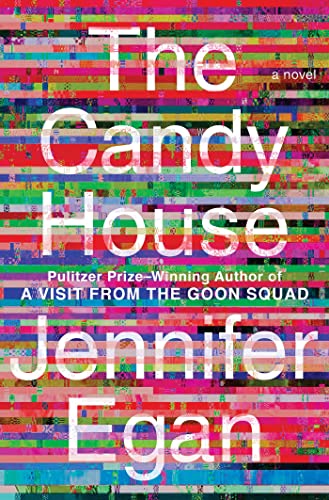
With so many people recording their thoughts and actions on social media, Jennifer Egan takes it to the next step and creates a novel where people can save their memories. It is called a Mandala Cube, and the concept is “own your unconscious.” For example, one can keep unconscious thoughts and memories for use after a traumatic brain injury or restore losses due to Alzheimer’s or other diseases. But, as with most inventions, there are unintended consequences. The collective unconscious, Jenifer Egan says, is akin to invasive omniscience.
Each chapter is a standalone episode told in a different voice. It is almost impossible to keep track of all of the characters that play a role in this cautionary tale. However, the relationships among many of the characters become apparent as the novel progresses. There are eluders in opposition to those who support the widespread sharing of memories in a searchable, Facebook-like fashion. Then there is the Mondrian, a network of role-playing proxies at odds with Mandala cube. And, as expected, there is government use of the new technologies and lots of luring of strangers and temptations to enter the metaphoric Candy House of the title.
Authenticity is a prominent theme, with some characters claiming to behave in ways that scream authenticity. Yet the different points of view continually remind us of the biases in determining the differences between fact and fiction, especially in the world of social media. Included in many episodes of this story is the role-playing game of Dungeons and Dragons, where characters are rated. The seriousness of role-playing games, especially in drug recovery centers, is strangely analogous to the quantifying that Social Media moguls conduct when assessing people’s online posts—counters, in Egan’s world, rate people’s memories. The scenarios in the book should serve as a warning for what can happen with the continued sharing of EVERYTHING on social media. Some questions to consider while reading include:
What is reality? Whose reality constitutes a fact?
When is it a good idea to share your consciousness?
Are we comfortable being assessed as people the way Dungeons and Dragons characters are rated?
Is it satisfactory to be a real person in a fake world?
Who or what is your actual identity? How much of it should you feel comfortable sharing?
How much fear is healthy or acceptable?
Have modern communication forms via technology led to losing the art of conversation?


